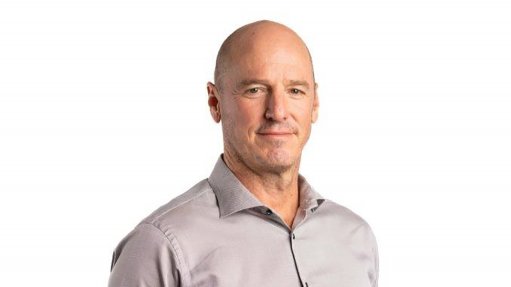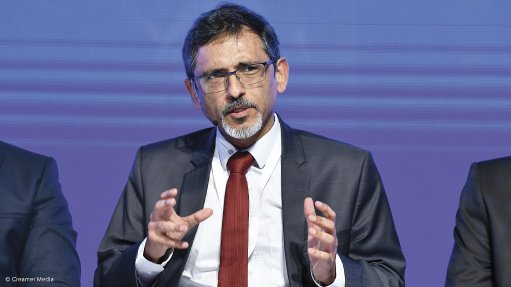Women-led businesses forging ahead in SA, despite ongoing challenges
Women-owned companies tend to face various challenges, including a smaller turnover and fewer employees because of the different goals women have when starting a business, but, regardless of this, South African businesswomen progress better than many of their global counterparts.
This is according to global nonprofit member- ship organisation Women Presidents Organ-isation (WPO) Gauteng Chapter Two chair Miranda Isaakidis.
The WPO is an affiliation for successful women entrepreneurs worldwide and connects women CEOs through its monthly Chapters to share business expertise and experiences.
The organisation has been operating in Cape Town for five years and launched its first Johannesburg chapter in October last year. It intends to roll out additional chapters to support women-led second-tier companies.
Isaakidis notes that different factors affect women entrepreneurs at various stages of their careers and that mentoring can make a significant difference.
She says there is a perception that women perform well only in the retail, beauty and fashion industries, but dismisses this, adding that local WPO members are good examples of the diversity of industries in which women are involved.
“We have members who are active in steel fabrication, fruit farming, food production, finance and the manufacturing of cell towers, pumps and valves, as well as in the more traditional women-led businesses, such as event management, advertising and travel,” Isaakidis adds.
Many women are moving into and are making significant inroads in the more male-dominated industries, such as mining, energy and construction, she states.
Some of the common challenges experienced by women in leadership positions include a lack of corporate exposure, combining business and social agendas, not managing costs as firmly as men do and often significantly developing a business to a point without having the operating processes in place to move to the next stage.
Isaakidis attributes these challenges to a historical backlog and says it will take time for women to have access to the same level of networks and business opportunities as their male counterparts.
Further, while business-women are achiev-ing some success in over-coming gender issues, some challenges remain.
However, according to a report published by the United Nations in January, women entrepreneurs are key to sustainable global development.
Isaakidis agrees and adds that, with mean-ingful support mechanisms, companies will be able to move beyond sustainability and faster into the growth path of the curve.
The WPO chapters comprise groups of 12 to a maximum of 20 women in high-value leadership positions in privately owned companies. Through global, confidential and collaborative peer-learning groups, the WPO offers an alternative to traditional leadership development.
The organisation was established specifically to support second-tier companies to address challenges and focus on accelerating business growth, enhancing competitiveness and promoting economic security.
“The monthly meetings require commitment, but, in return, members have access to the top talent that money can buy, reinforced learning and the opportunity to strategically work on their business.
“The added bonus is the friendship and support of a peer group and a holistic support system that has yielded excellent results for WPO members worldwide,” states Isaakidis.
Members are required to have revenues of R10-million in the services sector, R20-million in product-based businesses or more than R50-million for commissioned-based operations.
Isaakidis stresses that the revenue requirements are not elitist, but are rather essential so that all members can benefit equally from the meetings, as the WPO was established specifically to support companies of a certain size.
She says the WPO believes that several more chapters can be established in Johannesburg and in Pretoria and it looks forward to extending its membership across the country.
“Women in South Africa have contributed hugely to establishing political freedom in this country and have demonstrated their strength and resilience for decades. We are contributing to the economic growth of the country through our creativity, business skills and dynamic leadership.
Comments
Announcements
What's On
Subscribe to improve your user experience...
Option 1 (equivalent of R125 a month):
Receive a weekly copy of Creamer Media's Engineering News & Mining Weekly magazine
(print copy for those in South Africa and e-magazine for those outside of South Africa)
Receive daily email newsletters
Access to full search results
Access archive of magazine back copies
Access to Projects in Progress
Access to ONE Research Report of your choice in PDF format
Option 2 (equivalent of R375 a month):
All benefits from Option 1
PLUS
Access to Creamer Media's Research Channel Africa for ALL Research Reports, in PDF format, on various industrial and mining sectors
including Electricity; Water; Energy Transition; Hydrogen; Roads, Rail and Ports; Coal; Gold; Platinum; Battery Metals; etc.
Already a subscriber?
Forgotten your password?
Receive weekly copy of Creamer Media's Engineering News & Mining Weekly magazine (print copy for those in South Africa and e-magazine for those outside of South Africa)
➕
Recieve daily email newsletters
➕
Access to full search results
➕
Access archive of magazine back copies
➕
Access to Projects in Progress
➕
Access to ONE Research Report of your choice in PDF format
RESEARCH CHANNEL AFRICA
R4500 (equivalent of R375 a month)
SUBSCRIBEAll benefits from Option 1
➕
Access to Creamer Media's Research Channel Africa for ALL Research Reports on various industrial and mining sectors, in PDF format, including on:
Electricity
➕
Water
➕
Energy Transition
➕
Hydrogen
➕
Roads, Rail and Ports
➕
Coal
➕
Gold
➕
Platinum
➕
Battery Metals
➕
etc.
Receive all benefits from Option 1 or Option 2 delivered to numerous people at your company
➕
Multiple User names and Passwords for simultaneous log-ins
➕
Intranet integration access to all in your organisation

















